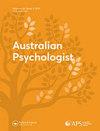在COVID-19期间寻求生育治疗的澳大利亚和新西兰患者的身心健康状况
IF 2
4区 心理学
Q2 PSYCHOLOGY, MULTIDISCIPLINARY
引用次数: 0
摘要
摘要背景在全球范围内,新冠肺炎扰乱了生育治疗和患者生育计划的提供,导致许多寻求组建或扩大家庭的人压力加大。目的我们的研究探讨了新冠肺炎对澳大利亚和新西兰接受生育治疗患者的健康行为变化和心理社会影响。材料和方法60名参与者(58名女性;2名男性)完成了一项关于人口统计、生育史和治疗、身心健康状况变化以及感知支持的在线横断面调查。参与者的回答采用描述性统计进行总结。结果患者表示新冠肺炎对他们的生育治疗体验产生了不利影响,包括因生育诊所关闭而中断治疗(70%)和对怀孕的恐惧(68.3%)。患者报告了负面的健康行为变化,包括睡眠质量下降(40%)、运动减少(40%),体重增加(56.7%),抑郁症状增加(38.3%)、焦虑(75%)、压力(78.3%)和孤独(38.3%。在提供专业支持时,最常见的是通过生育医生和护士(48.3%),而咨询师(3.3%)。结论(s)与更大的国际群体的研究结果一致,本研究强调了新冠肺炎对健康行为和心理健康的负面影响。此外,鉴于新冠肺炎形势的不断变化,我们的研究强调了在这场前所未有的大流行期间,推广和利用生育诊所咨询服务以加强患者心理护理的重要性。关键点关于这个话题已经知道的内容:(1)通过辅助生殖技术努力怀孕通常被认为是一个有压力的过程。(2) 在全球范围内,新冠肺炎扰乱了生育治疗的提供,推迟了患者的生育计划,增加了患者的身心健康负担。(3) 迄今为止,澳大利亚和新西兰尚未从患者角度对新冠肺炎时期寻求生育治疗的患者的身体和心理经历进行研究。这项研究补充道:(1)这项区域研究有助于全球发现在疫情期间寻求生育治疗的人的心理和身体健康问题。(2) 该研究强调,专业诊所咨询的利用率不足,表明诊所咨询服务的提供不足。(3) 认识到在一场前所未有的危机中,持续监测与生育相关的患者心理健康和身体健康行为,并转诊至专业心理咨询服务,这一点很重要。本文章由计算机程序翻译,如有差异,请以英文原文为准。
Physical and psychological wellbeing among Australian and New Zealand patients seeking fertility treatment during COVID-19
ABSTRACT Background Worldwide, COVID-19 has disrupted the provision of fertility treatment and patients’ reproductive plans, resulting in heightened stress for many people seeking to form or expand their families. Aims Our study explored health behaviour changes and psychosocial implications of COVID-19 in patients accessing fertility treatment in Australia and New Zealand. Materials and Methods Sixty participants (58 female; 2 male) completed an online cross-sectional survey about demographics, fertility history and treatment, changes to physical and mental health status, and perceived support. Participant responses were summarised using descriptive statistics. Results Patients indicated that COVID-19 had adversely impacted their fertility treatment experience, including interruptions to treatment owing to fertility clinic closure (70%) and fears about conceiving (68.3%). Patients reported negative health behaviour changes, including a reduction in sleep quality (40%), reduced exercise (40%), weight gain (56.7%) and increases in symptoms of depression (38.3%), anxiety (75%), stress (78.3%) and loneliness (38.3%). Whilst most participants agreed their fertility clinic clearly communicated policy about COVID-19 service changes, including information about availability and/or restrictions, approximately 55% reported being offered nil to very little professional psychological support. When provided professional support, this was most commonly via fertility doctors and nurses (48.3%) compared to counsellors (3.3%). Conclusions(s) Commensurate with findings from larger international cohorts, this study highlights the negative impact of COVID-19 on health behaviours and psychological wellbeing. Moreover, given the ever-changing landscape of COVID-19, our study underscores the importance of promoting and utilising fertility clinic counselling services to enhance patient psychological care during this unprecedented pandemic. Key Points What is already known about this topic: (1) Endeavouring to conceive a pregnancy involving assisted reproductive technology is often considered a stressful process. (2) Worldwide, COVID-19 disrupted the provision of fertility treatment delaying patients’ reproductive plans, increasing patient physical and psychological health burden. (3) To date, no study has been conducted in Australia and New Zealand on the physical and psychological experiences of patients seeking fertility treatment during the era of COVID-19, as gauged from the patient perspective. What this study adds: (1) This regional study contributes to global findings on mental and physical health issues in people seeking fertility treatment during a pandemic. (2) The study highlights the under-utilisation of specialised clinic counselling suggestive of a deficit in the provision of clinic counselling services. (3) Recognition that during an unprecedented crisis, ongoing surveillance of patient psychological wellbeing and physical health behaviours relevant to fertility and referral to professional psychological counselling services are important.
求助全文
通过发布文献求助,成功后即可免费获取论文全文。
去求助
来源期刊

Australian Psychologist
PSYCHOLOGY, MULTIDISCIPLINARY-
CiteScore
3.70
自引率
5.30%
发文量
32
期刊介绍:
The Australian Psychologist is the official applied practice and public policy journal of the Australian Psychological Society. As such, the journal solicits articles covering current issues in psychology, the science and practice of psychology, and psychology"s contribution to public policy, with particular emphasis on the Australian context. Periodically, Australian Psychological Society documents, including but not limited to, position papers, reports of the Society, ethics information, surveys of the membership, announcements, and selected award addresses may appear in the journal.
 求助内容:
求助内容: 应助结果提醒方式:
应助结果提醒方式:


